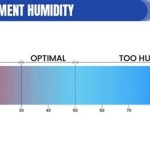Essential Aspects of Air Conditioners for Basements
Basements are often overlooked when it comes to air conditioning, but they can be just as uncomfortable as any other room in the house during the summer months. In fact, basements can be even more challenging to cool because they are often below ground level and have limited ventilation. If you're looking for an air conditioner for your basement, there are a few things you need to keep in mind.
Capacity
The first thing you need to consider is the capacity of the air conditioner. This is measured in British Thermal Units (BTUs), and it represents how much heat the air conditioner can remove from the air. The capacity you need will depend on the size of your basement and the amount of heat it generates. A general rule of thumb is to choose an air conditioner with a capacity of 20 BTUs per square foot of floor space.
Type
There are two main types of air conditioners: central air conditioners and window air conditioners. Central air conditioners are installed outside the home and connect to a duct system that distributes the cooled air throughout the house. Window air conditioners are installed in a window and cool only the room in which they are installed. For basements, window air conditioners are typically the more popular choice because they are more affordable and easier to install than central air conditioners.
Energy Efficiency
The energy efficiency of an air conditioner is measured by its Energy Efficiency Ratio (EER). The higher the EER, the more efficient the air conditioner. A higher EER means that the air conditioner will use less energy to cool your basement, which can save you money on your energy bills.
Features
There are a number of features that you may want to consider when choosing an air conditioner for your basement. These features include:
- Dehumidifier: A dehumidifier can help to remove excess moisture from the air, which can make your basement feel more comfortable.
- Remote control: A remote control allows you to adjust the temperature and other settings of the air conditioner from anywhere in the room.
- Timer: A timer allows you to set the air conditioner to turn on and off at specific times.
- Sleep mode: Sleep mode reduces the noise level of the air conditioner, making it ideal for use in bedrooms.
Installation
Installing an air conditioner in your basement is a job that is best left to a professional. A qualified HVAC technician will be able to properly size and install the air conditioner to ensure that it operates efficiently and effectively.
Maintenance
Once your air conditioner is installed, it is important to maintain it regularly to ensure that it continues to operate properly. This includes changing the air filter every month or two, cleaning the coils, and scheduling regular maintenance checkups.
By following these tips, you can choose the right air conditioner for your basement and ensure that it keeps you cool and comfortable all summer long.

5 Best Options For Cooling Your Basement

Custom Portable Ac Window Kit For Awning And Basement Windows

How Effective Are Mini Splits In Basements

Faqs About Basement Air Conditioning

5 Best Options For Cooling Your Basement

Mini Split Ductless Hvac For Finished Basements Boer Brothers

Designing Your Hvac When Finishing Basement Guardian Home Experts

The 6 Best Portable Air Conditioners Of 2024 Reviews By Wirecutter

Custom Portable Ac Window Kit For Awning And Basement Windows

Why Use Ductless For Your Basement Air Conditioner Pfo Heating Conditioning
See Also








